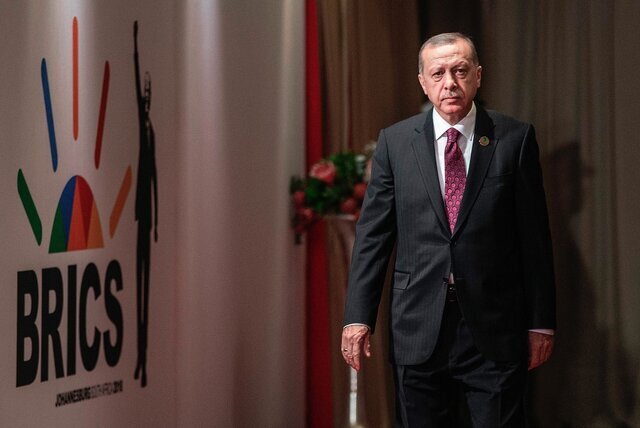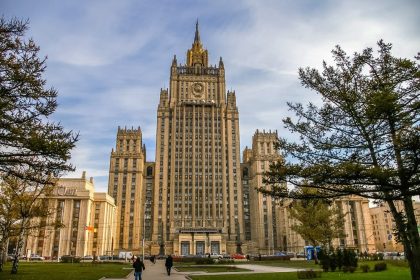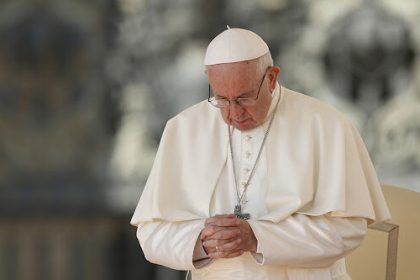Türkiye joining BRICS, a pressure lever against the West
In a statement, a Turkish economist described Türkiye’s desire to join the BRICS group as a “push lever against the West”.
According to RCO News Agency, in early September, the assistant of the Russian president, Yuri Ushakov, announced Turkey’s official request to join BRICS and confirmed that member countries of this group will consider this proposal.
Before that, the Bloomberg News channel announced in a report that Ankara submitted a request for BRICS membership a few months ago, partly due to the “split” between Turkey and other NATO members over the war in Ukraine. Türkiye is the first NATO member to seek membership in the non-Western BRICS group.
Meanwhile, Türkiye’s request raised concerns in the European Union.
In response to the news of Turkey’s official request to join BRICS, EU spokesman Peter Stano said: “Ankara, as a candidate to join the EU, must respect the EU’s values and foreign policy preferences, despite the right to choose international organizations to join it. has the
Türkiye was announced as a candidate country for the European Union in 1999 and has been negotiating to join it since 2005. However, the European Parliament suspended accession negotiations with the country in 2019, citing human rights violations. According to Bloomberg, the Turkish leadership is apparently frustrated by the lack of progress in its decades-long effort.
In this regard, on Monday evening, Turkish economist “Barto Soral” said in an interview with the Russian news agency “Tass”: “Turkey has very strong economic and political motives for joining BRICS.”
He added: “Reducing the dominance of the West in the international system will bring BRICS to a leading position in production and export.” In this context, Türkiye values its relations with the Turkish and Russian countries that are active in the region. There are many points of commonality here. “However, Türkiye’s interest in joining BRICS is an attempt to gain leverage against the West and has political motives.”
Saying that “the Anglo-Saxons are losing their power”, Soral stated: “The global distribution of power has undergone extensive changes. Since the early decades of the 21st century, extensive changes have taken place. The G7 countries used to dominate, but now the European Union and Japan have lost their power. But BRICS member countries are the world’s top producers and exporters.”
Referring to Türkiye’s political motives, this economist pointed out: “BRICS is an economic association and it should be looked at from the same point of view. We need a national plan, a road map for interaction with BRICS, a production plan in various industries within the framework of the BRICS economy, and personally, I do not see such plans from the Turkish government, and I think that Turkey’s request is not serious.”
Earlier, Turkish Foreign Minister Hakan Fidan said that Ankara was evaluating its participation in BRICS from the perspective of economic cooperation opportunities, but said that “the association is currently looking for an identity, options for institutionalization, so it is difficult to say engagement.” What point can Turkey reach with BRICS?
However, Fidan noted that “if Turkey’s EU integration ended with full EU membership, perhaps Turkey would not have looked for other options on many issues.”
On the other hand, last week, Turkish President Recep Tayyip Erdogan said: “Turkey will not stop deepening relations with the East, including the BRICS group of countries and the Shanghai Cooperation Organization, even if it continues to interact with the West.”
BRICS was established in 2006 by Brazil, Russia, India and China, and South Africa joined it in 2011. The group expanded this year when Egypt, Ethiopia, Iran and the United Arab Emirates became full members. According to Ushakov, more than 30 countries have officially applied to join.
end of message
RCO NEWS
RCO

















